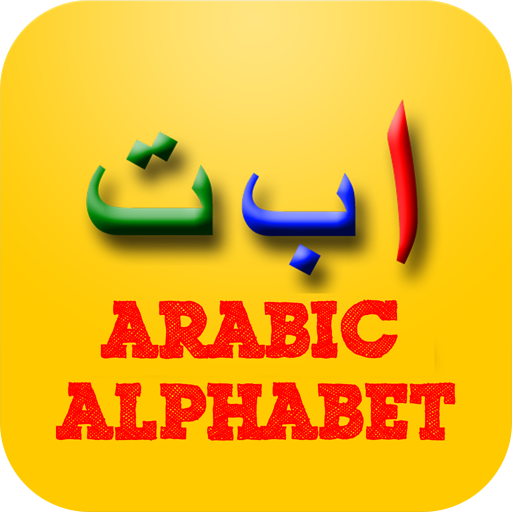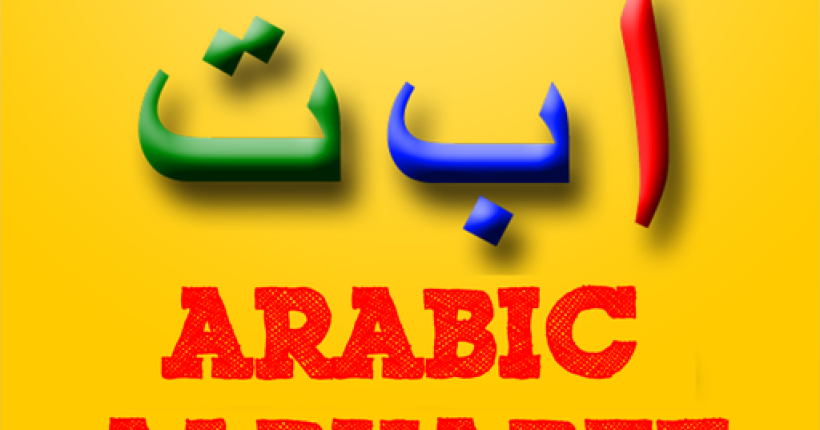For anyone wishing to master the Arabic language, learning How to memorize Arabic vocabulary fast is one of the top concerns. As a beginner or a person with basic knowledge of Arabic, expanding your vocabulary quickly will help you feel more confident, improve your speaking ability, and help your conversations flow more naturally.
The best way to do this is to utilize effective, scientific methods that create long-term memories of new words. In this guide, we will share with you 7 effective ways to memorize Arabic vocabulary fast that you can start on today.
1. Have Clear and Realistic Vocabulary Goals
When it comes to learning How to memorize Arabic vocabulary fast, having clear and realistic vocabulary goals is a game-changer. Without any type of a plan, it is easy to become overwhelmed after the first day, or unmotivated to continue.
By chunking your learning into smaller, definable steps, you will notice the progress you are making and stay focused on the path to learning Arabic.
Why Goals are Important for Learning Arabic Vocabulary
Helps You Stay Focused – Being aware of the number of words you want to learn every day, will help you stay focused and discourage distraction, as well as keep your fact learning more purposeful.
Increases Motivation: Small wins – such as completing ten new words – lifts your confidence and motivates you to keep going.
Tracks Progress: Measurable targets mean that you can see the distance you’ve travelled – this hugely motivates you.
How to Set Good Goals?
If you are going to truly become proficient in How to memorize Arabic vocabulary fast, your goals need to be:
Specific: Instead of – “I’m going to learn Arabic today,” say “I’m going to memorize 15 words today related to travel.”
Realistic: Choose a number you can commit to doing consistently without burning out.
Time-bound: Designate a time frame – daily, weekly or monthly – to keep you on track.
2. Use Spaced Repetition to Retain for the Long Term
One strategy which is most effective when thinking about How to memorize Arabic vocabulary fast is spaced repetition – a learning technique which involves practicing words at gaps in intervals over time. This learning strategy uses how we store information in our brain to help retain new words for week, months, and years.
Why Spaced Repetition works best for How to memorize Arabic vocabulary fast
Stops Forgetting: Instead of cramming and forgetting, you practice just as the word is fading out of your memory.
Saves Time: You only practice words you are about to forget rather than overlapping practice with words you already know well.
Builds Long-Term Memory: Repeat review builds recall. The vocabulary gets recalled almost instantly.
How to Use Spaced Repetition in Arabic Learning
Daily Fast Review: Review words learned the day before for 10-15 minutes.
Gradual Intervals: The spaced timing should look like reviewing after 1 day, 3 days, 1 week, and finally 2 weeks.
Use Available Tools: Use your flashcard app or anything on Tareequl Jannah with review activities to help easily time your repetitions.
A Learner’s Success Story
Ahmed is a student at Tareequl Jannah and found it challenging to even learn a handful of new Arabic words each week. After being introduced to spaced repetition by his instructor, it completely changed his results.
In a month, Ahmed had memorized over 200 new vocabulary words and was able to seamlessly recall these in conversations. He attributed his success to “learning smarter, not harder”, which is another distinct benefit from spaced repetition.
3. Learn Words in Context Instead of Isolation
If you really want to learn How to memorize Arabic vocabulary fast, then you will need to move beyond single words and just memorizing lists of words. Contextualized vocabulary learning, in phrases, stories and real-life conversations, establishes the association your brain needs to connect meaning, usage and pronunciation all at once.
Why Learning in Context is Effective
Enhances Comprehension: Not only do you understand the definition of a word, you also understand how and when to use that word.
Improves Retention: Learning word concepts relating to a meaningful situation or sentence makes it easier to remember.
Prepares You for Real Life Dialogue: Context mimics how language is used in real life.
Practical Methods for learning Arabic Words in Context
Read Brief Texts: Think of stories, small news articles, or Quranic verses. This will help narrow down the vocabulary being used.
Write Your Own Sentences: Use each new word in a sentence you could realistically say.
Use Dialogues: Use scripts or practice with a conversation partner to see the words in use.
A Quick Example
Don’t memorize the term: “مطار” (airport), rather memorize it as a phrase:
“أنا ذاهب إلى المطار للسفر إلى القاهرة.” (“I am going to the airport to travel to Cairo.”) In this way, your brain creates a connection between the word and a real-life situation which enhances your ability to remember it.
4. Use Multiple Senses in Learning
An example of an underrated method for how to memorize Arabic vocabulary quickly is to engage more than one sense during study. The more senses you are able to engage—hearing, seeing, speaking, and writing, the stronger the memory connections in the brain, making it easier to access the words when you need them.
Why Multi-Sensory Learning Works
Reinforces Memory Paths: Each sense has its own memory link, giving you multiplicative recall strength.
Fosters Enjoyable Learning: Switching between activities keeps your brain awake, and prevents boredom.
Supports All Types of Learners: Multi-Sensory learning incorporates visual, auditory, and kinesthetic learning all in one method.
How to Use Multi-Sensory Learning to Learn Arabic
Listen: Listen to native speakers use the words in conversation or a recording.
Read: See the word in print, and relate the spelling to the pronunciation.
Speak: Say the word out loud, and repeat it several times to develop muscle memory.
Write: Write the word and the sentences down by hand to develop both a visual and a physical memory.
5. Group Words by Theme or Category
For fast mastery of How to memorize Arabic vocabulary fast, it is useful to organize your learning into themes or categories. Grouping random words together by topic, will result in your brain establishing a stronger mental connection to the words in a category, and allowing faster recall when you need those words for speaking purposes.
Why Thematic Learning Works
Creates Mental Paths: It’s easier to recall related words when they are still in the same “mental folder”.
Bridges Between Words & Speeds Up Recall: When you remember a word in a category, the other words in the category should tag along behind it.
Prepares You For Real World Situations: You can address a topic area all at once, when it comes to practical situations and conversation; you don’t have to pause to think of the list.
How To Group Your Vocabulary
By Topic: family, transportation, weather, emotions
By Situation: restaurant, airport, school, mosque
By Function: greeting, directions, telling time
Example – Travel Theme
If you’re learning the “Travel” theme, you might include:
مطار (airport)
جواز سفر (passport)
رحلة (trip)
حجز (booking)
By studying these words together, your brain associates them to the same situation which leads to remembering them more easily. 6. Use Mnemonics and Word Associations
6. Use Mnemonics and Word Associations
When considering How to memorize Arabic vocabulary fast, mnemonics and word associations is a fun and creative way to make new words unforgettable. By linking unknown Arabic words with something you are familiar with in your own language, a silly picture, or a mini-story, you are creating mental “hooks” that will make recalling the information much easier.
Why Mnemonics Are Effective?
Turns Abstract into Memorable: Your brain is more likely to remember odd or vivid images than plain text.
Creates Strong Memory Links: By linking a word to something you are familiar with (in terms of sound, meaning, etc.) you create a path for you to quickly find that link
Makes Learning Fun: The more ridiculous or oscillating your association, the more likely you will remember it.
How to Create Mnemonics for Arabic Vocabulary?
Sound Connection: Find an English word that sounds the same, and create a word association picture.
Visual Imagery: Picture a visual image of what a word means.
Mini Story: Create a short and fun sentence that uses the Arabic word as well as gives meaning.
Example
In Arabic, the word قلم (qalam) means “pen.” You might think of a koala (which sounds like “qalam”) using a pen. Every time you look at or think of a pen you see that koala, and the word will come to mind right away.
7. Practice Active Recall Daily
One of the most effective, yet straightforward, techniques for How to memorize Arabic vocabulary fast is active recall: prompting your brain for the meaning or spelling of the word and seeing if you can get it without looking at the answer.
Active recall engages with your memory in a way that passively rereading lists or notes cannot, and strengthens your memory more effectively than passive recall.
Why Active Recall Works
Strengthens Neural Connections: The effort of recalling the word forces your brain to strengthen the neural connection.
Spot Trouble Spots: You can see at once which words need more attention from you
Improves Retention in Long-Term Memory: The words you recall actively are much more likely to be remembered weeks or months later.
How to Practice Active Recall
Cover and Test: cover the meaning or the spelling of the word and try to recall it.
Speak Out Loud: See if you can use the word in a spoken sentence without checking first.
Plan Exams and Quizzes: create a short quiz for yourself each day, or use Tareequl Jannah, the interactive practice exercises.
Of course, learning on your own can feel daunting. This is where expert guidance and structured lessons will help kick your learning into high gear.
At Tareequl Jannah Arabic courses, you’ll be learning from experienced instructors who will be implementing these same strategies—plus personalized feedback, interactive practice, and themed lessons—to help you progress much faster than you could have imagined.
Whether you are starting off as a novice, or working toward fluency, you will receive everything you need to learn vocabulary faster, and then use that vocabulary in your everyday life.
Start your Arabic learning journey with Tareequl Jannah now, and see just how fast your vocabulary can grow.
Conclusion
Learning How to memorize Arabic vocabulary fast is not about working harder, it is about working smarter. Setting clear goals, spaced repetition, learning in context, using multiple senses, clustering words into themes, creating mnemonics, and active recall practice every day, will all help you have the opportunity to create a memorable vocabulary.


